Heya, chess lemmings. I've been wanting to analyze this game for a while and finally got around toit the other day, so now I'm hoping to get the writedown finished as well. I analyze this purely for my own learning, and I put it out here in hopes that someone might come with comments or critiques of either the gameplay or the analysis. Also this community needs posts and I'd love to add some here, especially ones that are not posts urging people to look at a smothered mate puzzle.
Anyway.
The game went as follows:
- d4 f5 2. Nc3 Nf6 3. Bf4 d5 4. g4 Nc6 5. gxf5 Bxf5 6. Nb5 e5 7. Bxe5 Bd6 8.
Nxd6+ cxd6 9. Bxf6 Qxf6 10. Nf3 O-O 11. Bg2 Qg6 12. Rg1 Bxc2 13. Nh4 Bxd1 14.
Bxd5+ Kh8 15. Nxg6+ hxg6 16. Rxd1 Rf5 17. Bxc6 bxc6 18. Rxg6 Raf8 19. f3 Rd8 20.
e4 Rh5 21. Rd2 Kh7 22. Rdg2 Rg8 23. R6g5 Rh6 24. Ke2 Re6 25. Kd3 d5 26. exd5
cxd5 27. Rh5+ Rh6 28. Rxd5 Rb8 29. b3 Rh3 30. Ke4 Re8+ 31. Re5 Rc8 32. d5 Rh4+
- f4 Rc3 34. Kd4 Rc1 35. Rd2 Rxf4+ 36. Re4 Rf6 37. Rh4+ Kg8 38. Re2 Rd1+ 39.
Kc4 Rd6 40. Rh5 Rc1+ 41. Kb4 a5+ 42. Kxa5 Rc5+ 43. Kb4 Rc8 44. Re6 Rb8+ 45. Kc4
Rc8+ 46. Kd4 Rdd8 47. d6 Rc2 48. a4 Rd2+ 49. Kc5 Rc2+ 50. Kb4 Rd2 51. a5 Rd4+
- Kc3 Rd1 53. a6 Rc8+ 54. Kb4 Rb8+ 55. Rb5 Rd4+ 56. Ka5 Rc8 57. d7 Rxd7 58. a7
Rxa7+ 59. Kb6 Rac7 60. Rc6 Rxc6+ 61. Kb7 R6c7+ 62. Kb6 Rc2 63. b4 Rxh2 64. Kb7
Rd8 65. Rc5 Rhd2 66. Kc7 R2d7+ 67. Kc6 Rd1 68. Kb6 Rb8+ 69. Ka5 Rb1 70. b5 g5
0-1
It's a fairly long game for a 10 minute online game, but here we are. At the time I was learning the Jobava-Rapport opening, and I faced the Dutch defense. A line I had looked at for a couple of minutes, then discarding it as a line I'd never meet because who in the world plays f5? So of course, I met it.
I remembered vaguely from my study that you just did the usual moves and then slammed in g4. It seems after further looking at it that this line isn't the best ever, but can be a nice way to surprise your opponent. I didn't think too much about it and tried to play the opening fast. After black plays 4... Nc6 I end up playing gxf5, which I'm pretty sure is not the idea with playing g4 in the first place. I'll look over the line and what the computer says about the game a week or so after I post this writeup.
So we get the 'normal' opening with 1. d4 f5, the Dutch defense. I play my Jobava Rapport system anyway, so Nc3 Nf6 Bf4. Now I play g4. In the Hans Niemann Chessable course, the line goes 3... a6 4. g4 fxg4 5. Qd2 d5 6 0-0-0. In the game, there was no 3... a6 which means I should probably have played Nb5 and not g4.
After g4, opponent plays Nc6, which probably should've made me think about Nb5. I don't really see how f5 makes a difference from when you'd normally go Nb5 in this opening. As is often the case with some half-cooked opening study,I hurt myself in confusion and got too excited about g4. I played gxf5 in the match, which seems like an okay move, but the whole g4 gxf5 deal seems less than great considering it took two moves and leaves a hole in the pawn structure for no obvious gain.
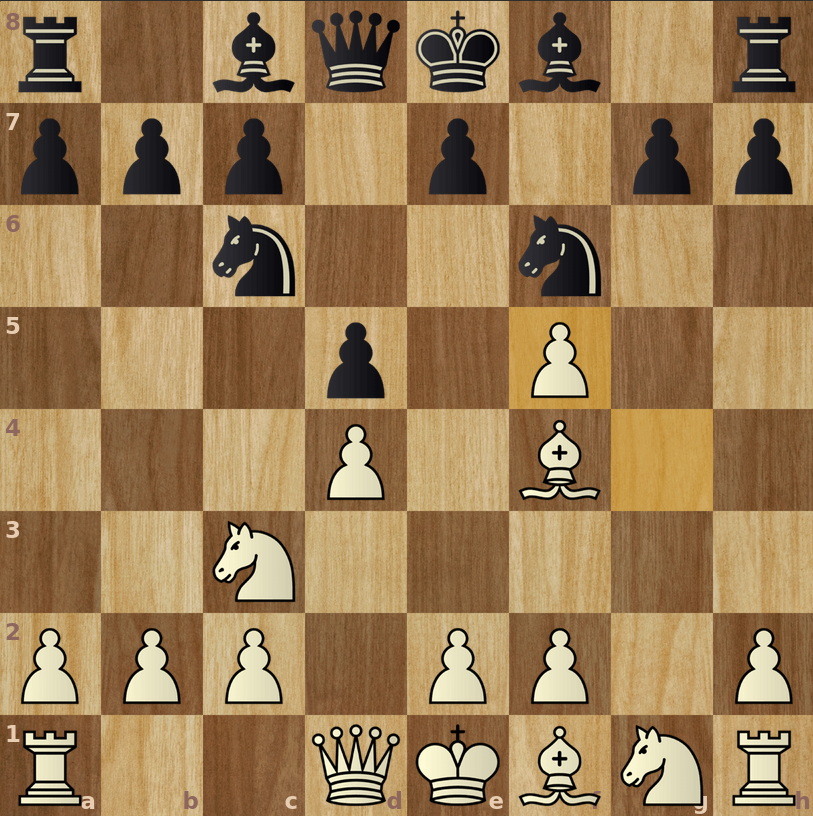
So now I am for sure out of book, and we get Bf5 and I play Nb5 in the end. I win a pawn after the trades and attempt to block the knight with e5 in the middle. It's also notable that there's doubled pawns for black on the d-file. In the heat of the moment I thought the pawn up and the doubled pawns was enough to start aiming for an endgame where I'm a pawn up and black has a long-term weakness. Because of this, I Traded my Bishop for the Knight on f6. Perhaps holding on to the Bishop pair was better? To do that, the Bishop would have to go back to either f4 or g3 and it wouldn't be a terribly active Bishop. If the opponent really wants the traded, he can always give chase with the knight and make the trade anyway, at the cost of a tempo compared to what happened in the game.
In the game, after Bxf6 I felt I was better, perhaps as much as +2 evaluation. Now, it seems Bxf6 must've been a mistake as it developed blacks Queen. However, white is up 1 pawn so I'd say the advantage is closer to +1.
I want to develop my Kingside, and play some developing moves without giving them a lot of thought in the game. Nf3 comes first as protects the d-pawn. In analysis, it seems the move is necessary as e3 runs into Be4 and there'd be d3 Qh4+... Not sure if that is good for Black, but the King has to move and so it seems to invite some trouble. Maybe you'd get something like Kd2 Bg6. It could be fine per Stockfish, but seems at best practically difficult to play as you'll have to worry about the King. Black castles Kingside. He gets the Rook straight into the action, seems like a nice move.
I keep trying to develop with 11. Bg2. It seems this must be the best timing to play Qd2 to prepare long castles, specifically because the g4 pawn is pushed and Queens are still on the table so King safety is obviously a concern to take seriously. In the game, I don't think I really gave this serious thought and somewhat overlooked the whole idea for black to attack my Queen. However, Qd2 seems great. Not sure what black would respond with, maybe Rfe8. It would look something like this:
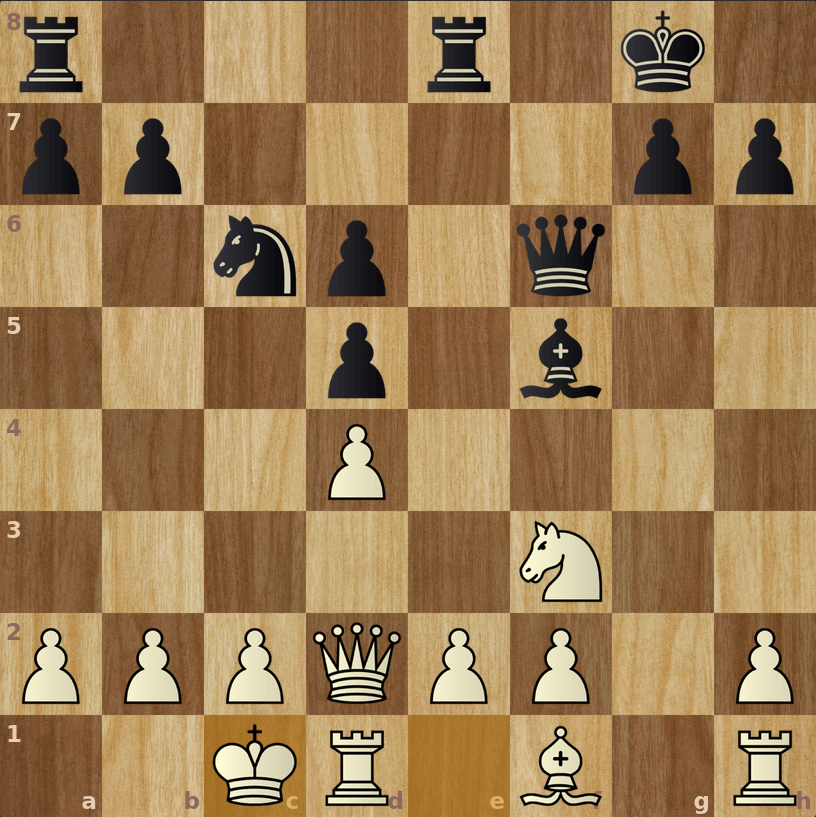
Black tries to attack my Bishop on g2 by playing Qg6, I defend with Rg1. Now black has established both the queen and the bishop on the c1-h8 diagonal and he's thus able to attack my Queen while also snatching a pawn with Bxc2. Which he plays. Maybe I should've seen this coming and not played Bg2 earlier, and again we're back to the idea of having played long castles being nice.
Anyway, now my Queen is under attack and I can't take the bishop. Qd2 is a possible move, but it seems you'd just forfeit the pawn. In the moment, I decided to go for the counterattack with Nh4 He grabs my Queen, and I grab his after an intermezzo with Bxd5+ (surpisingly cerebral considering I was developing more or less on autopilot a few moves ago) moving the black King to h8. This lets me play Nxg6+, also with check. It seems black could've responded better to Nh4, but maybe the whole Bxc2 idea to attack the Queen was unsound. It's tempting to turn on the engine here, but I can't seem to find any move that is really better for black than what was played after Nh4, Bxd1. After everything is said and done with the Queens, we get this:
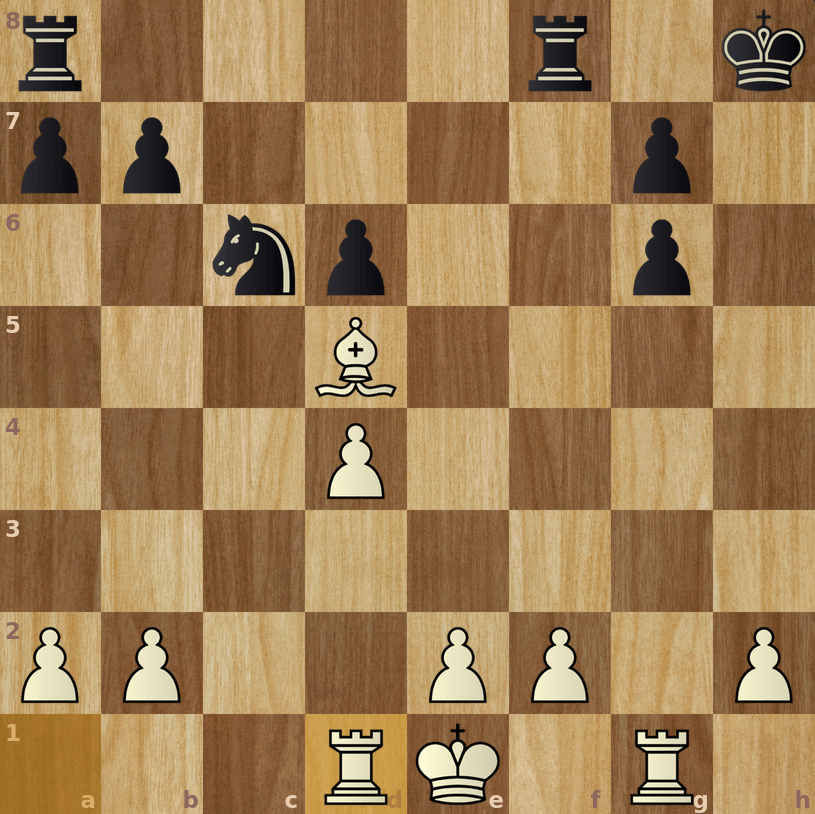
However, the position doesn't seem to change drastically after all this. White is still a pawn ahead, and black has doubled pawns. Black decides to play 16... Rf5 for some reason. I have the same idea as earlier in the game: I'm a pawn up and I want to simplify by trading off all the pieces. So I play 17. Bxc6. He takes back with the b Pawn, and then I take the undefended Pawn on g6 with 18. Rxg6.
Now we enter a Rook and Pawn endgame where I try really hard to trade off the Rooks, but Black is refusing to trade, so it drags on for a bunch of moves. I'm not sure if this is conscious from my opponent to try and run the time down, at move 1 we both had about 6 minutes remaining. Of course, it's better forhim to keep the Rooks so it makes sense. At the start of the endgame,I was 2 pawns ahead and thus I was aware this was a clearly winning position. This shuffling of the Rooks goes on for almost 40 moves, but I'm slowly advancing my pawns all the way up the board. My technique might not be the best ever, but it's getting the job done. However, it seems a lot of moves accomplish nothing except hoping black will accept a trade eventually. I will note for myself that I should study more Rook endgames to waste less time in them in the future. This shuffling of the Rooks goes on for almost 40 moves, and on move 56 we reach a critical position:
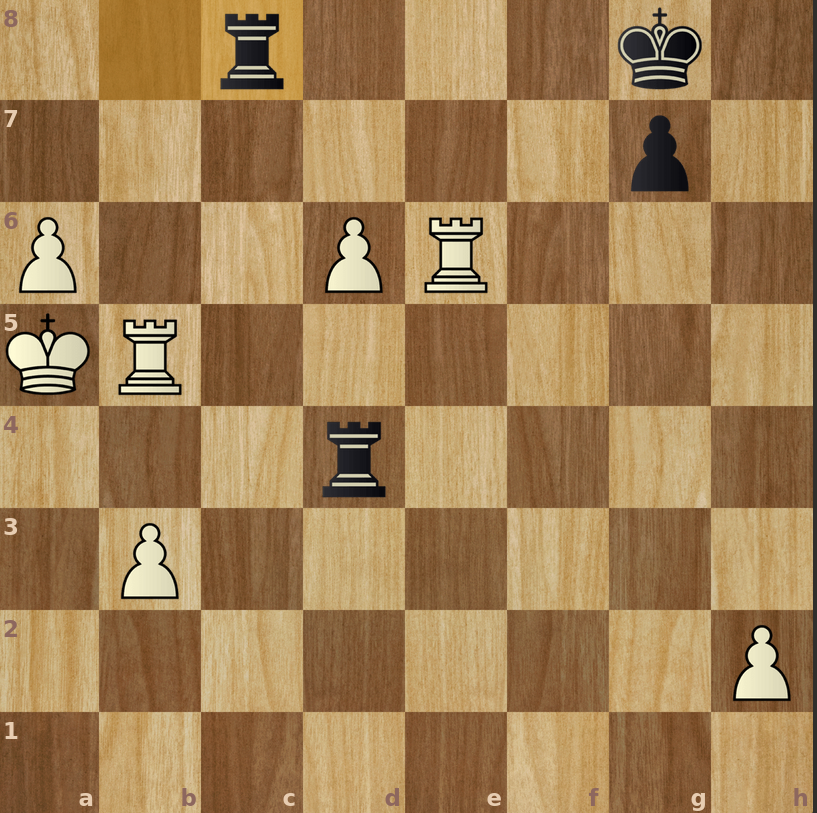
Here I have 30 seconds remaining on the clock and I blunder the d-Pawn with d7. Opponent takes the free pawn with Rxd7, and then I panick and play a7, then he plays Rxa7+ and the game is close to equal. Well, white is still up by a full pawn, but there's two active black Rooks and I had 20 seconds on the clock and he had 2 minutes, and I had just made two consecutive blunders which made my fairly emotional. So to top it off, I also blunder a full Rook and the game is essentially over. I play some frantic premoves before losing on time on move 70 (in a 10+0!).
Some quick key takeaways:
Don't try to play an opening line that you don't really know.
I need to study Rook endgames. I have done so since I played this game, and just having a clear idea of something simple like Rooks belonging behind passed pawns would probably win this game.
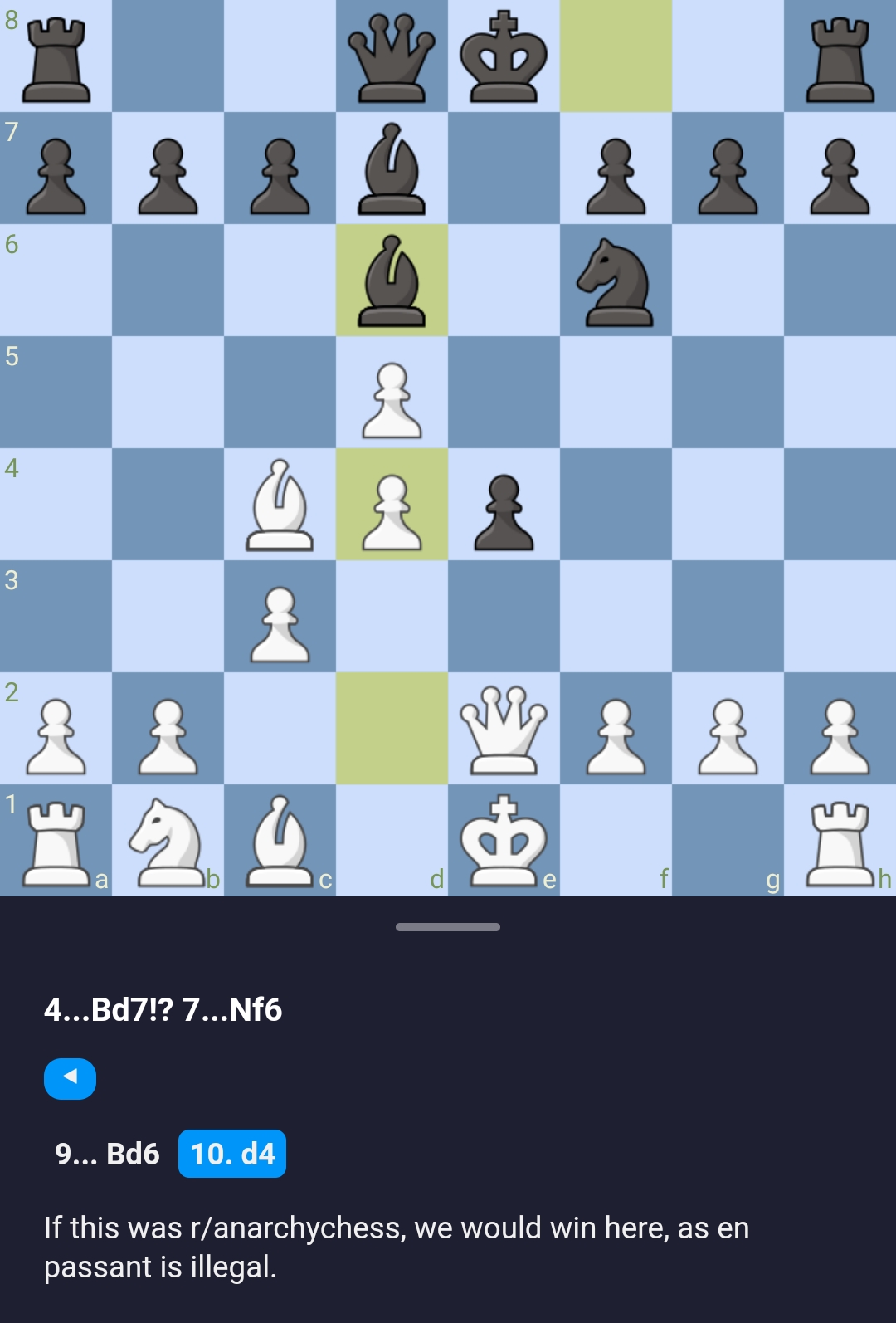
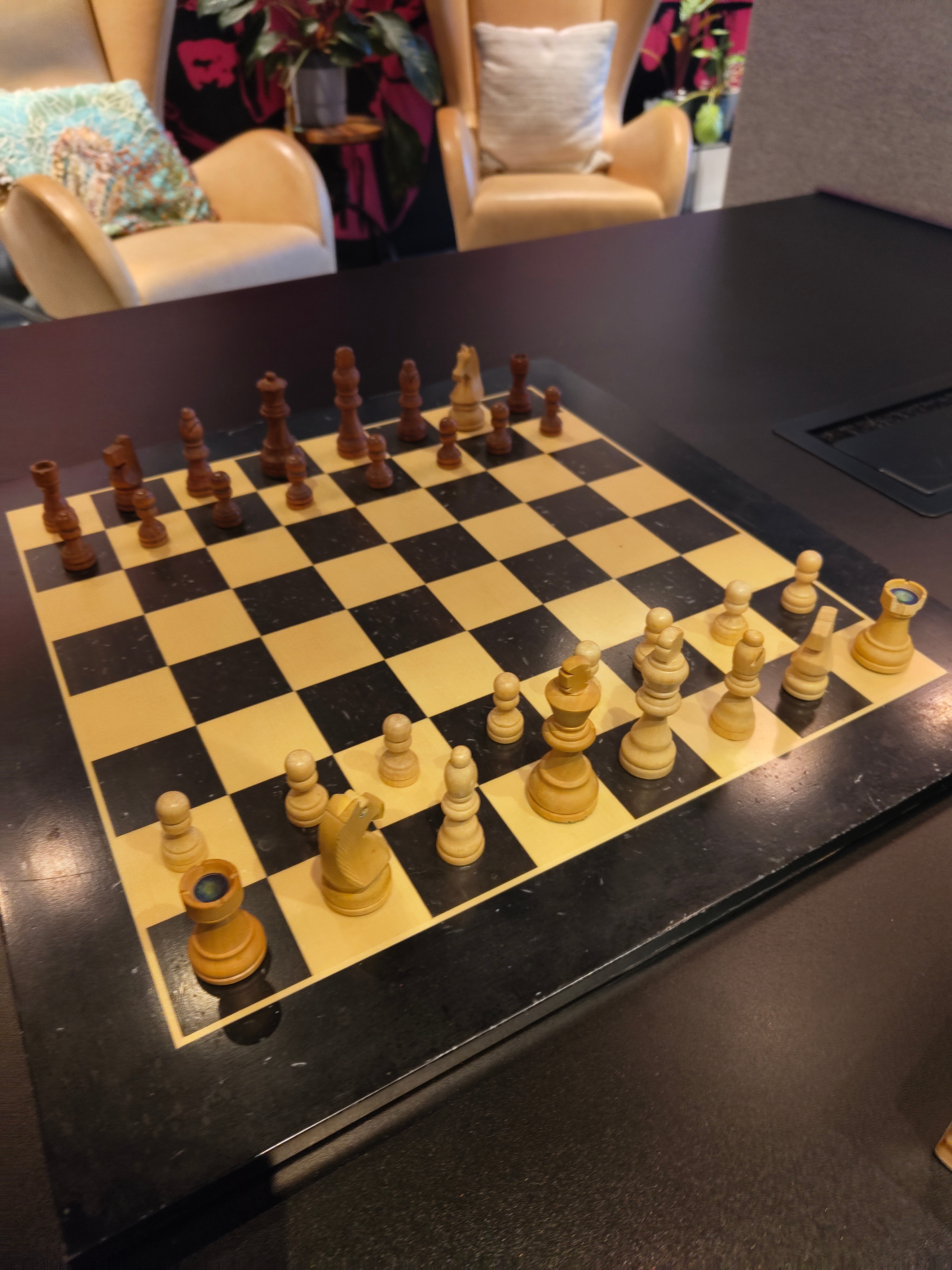





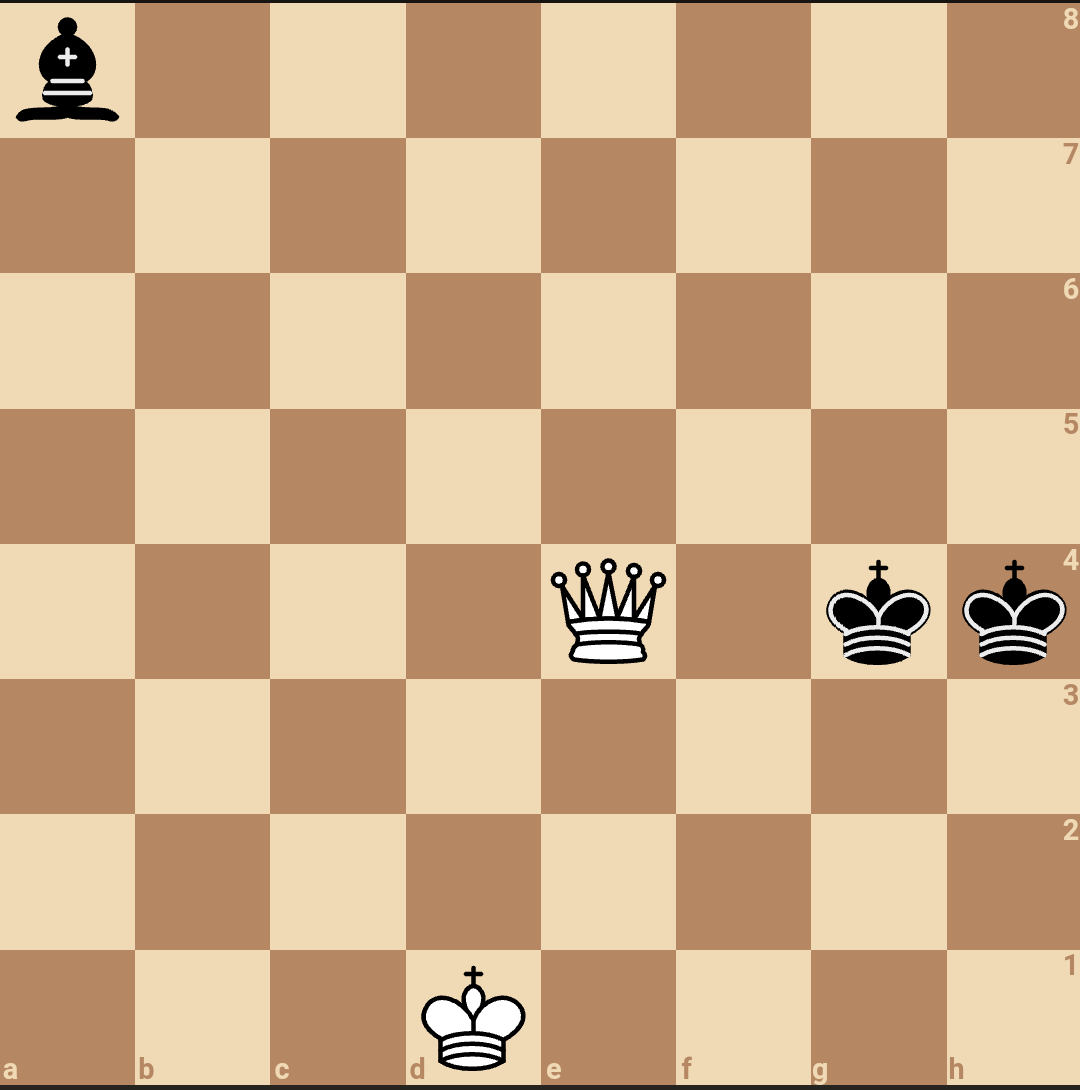
Akshually it's soy margarine